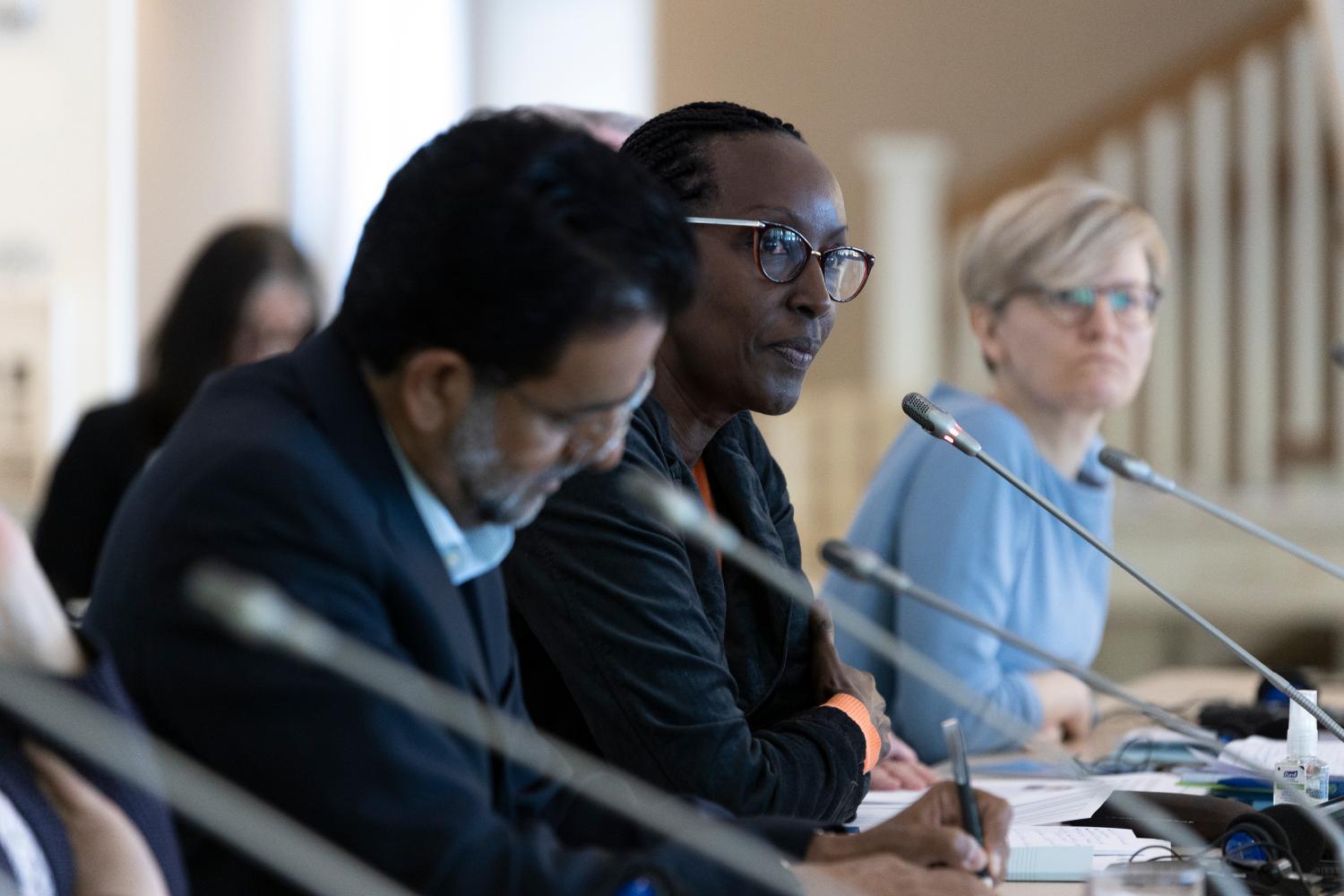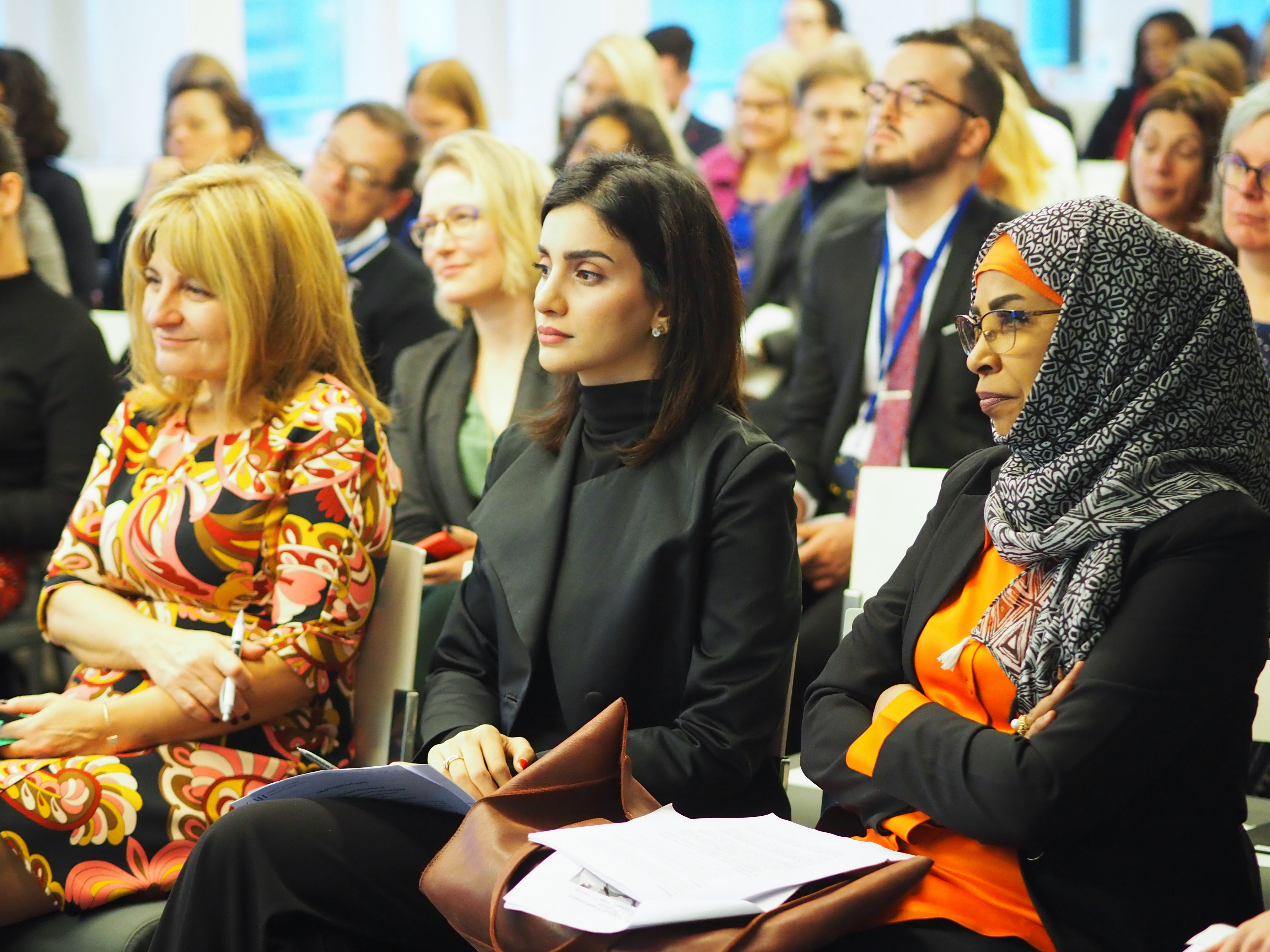Gender equality should be at the core of peacemaking

Peace goes hand in hand with equality: societies with higher gender equality tend to be more peaceful, while peaceful societies are better at making gains in gender equality.
Gender equality also matters for how peace is made. Men and women have equal rights to shape decisions that concern the future of their societies. The conditions for sustainable peace and post-war recovery are built simultaneously at political, community and personal levels. Therefore, both men and women should be able to take part in every step of the peace process, from pre-negotiation consultations to concrete actions taken after the shaking of hands.
Broad participation allows for a more comprehensive understanding of the drivers of the conflict and the requirements for a lasting peace. It also ensures that when a peace agreement is reached, the majority of citizens will understand the benefits of peace and will believe in the roadmap for peace that has been agreed upon.
Furthermore, peace processes create the rare moments of history when political rules are renegotiated – and as such are significant opportunities to make advances in gender equality. Without women’s participation at the peace table, these opportunities are easily missed.
Increasing women’s participation in peacemaking is a global agenda
In the year 2000, the United Nations Security Council recognized, for the first time in its history, the crucial role that women have in building and sustaining peace. The groundbreaking Resolution 1325 resulted from intensive lobbying by a transnational civil society movement and with important support by countries like Namibia and Bangladesh at the Security Council. To date, over a hundred countries have created national action plans to translate the agenda to concrete actions in their own context. This work is often led by national women’s movements, be it in Colombia, Burundi or Iraq. It is thus important to note that support for the so-called women, peace and security agenda is not limited to Western countries.
Despite these commitments, women continue to be marginalized in most peace processes. Less than one tenth of all peace negotiators over the past two decades have been women, and most formal peace agreements have had no women signatories at all.
Concrete support makes a difference
To advance more gender-equal peace processes, women’s rights to participate need to be acknowledged, and their roles in peacemaking supported. Although marginalized at official negotiation tables, women tend to be prominent figures in building trust and facilitating dialogue, particularly at the community level. These roles are often overlooked and undervalued. Ensuring that women are represented in all peacemaking spaces requires not only vital funding for women’s organizations, but also political support. With greater visibility on women actors, it is equally important to safeguard their security. Women who are active in public spaces encounter increasing harassment both in real life and in online spaces.

Photo: Anni Lindgren / CMI
As an independent peacemaking actor, CMI works to strengthen women’s roles in peacemaking. This means supporting politically nuanced, context-specific and locally driven action. In Afghanistan, CMI has been facilitating the work of the EU-led Afghan Women Leaders Forum. Consisting of diverse group of women, such as former parliamentarians, politicians, judges, human right activists, journalists and civil society representatives both from inside and outside Afghanistan, the Forum has brough forward the views of Afghan women in the international policy-making discussions concerning Afghanistan.
Action is timelier than ever
We are now witnessing an alarming uptick in violent conflicts worldwide, and many countries are increasing their military spending. Research suggests that militarization correlates with higher levels of gender inequality.
At the same time, existing commitments to gender equality and the international rules-based order are being questioned. The anti-gender movement is part of a deeper political current that is eroding democratic foundations in many countries. These developments make it ever more urgent to defend the gains made over the past decades and take concrete action to support gender equality and peacemaking.
When both women and men engage in peacemaking as equals to create conditions for better life in their societies, the visions for peace are enrichened. Peacemaking might not become any easier, but its outcomes are likely to be more inclusive and more just. Advancing gender equality is an essential part of this equation.


